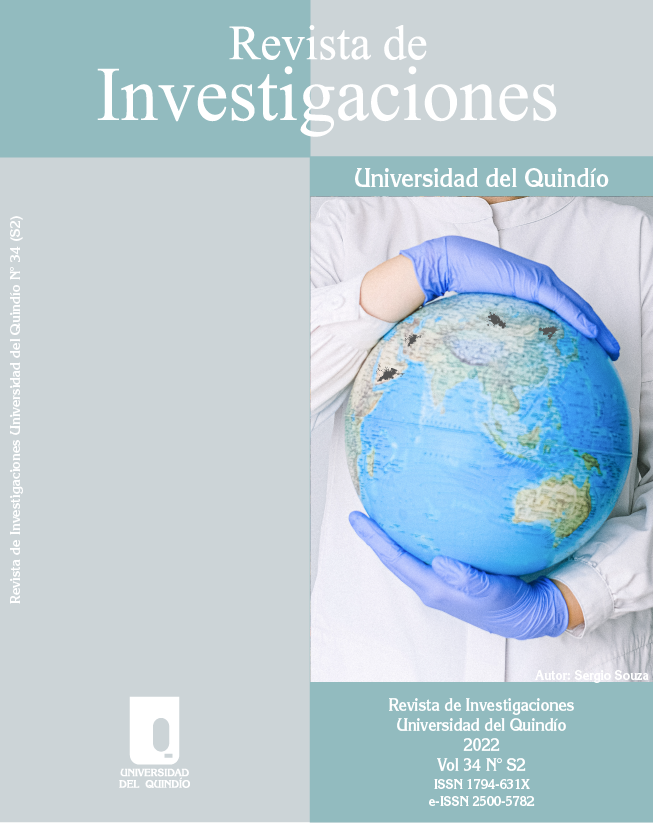Normas para la elaboración del presupuesto de funcionamiento para la gestión de la red comercial
DOI:
https://doi.org/10.33975/riuq.vol34nS2.960Palabras clave:
sistema de gestión, organización comercial, comercio minorista, control, presupuestaciónResumen
En el estado actual de las circunstancias del mercado, la reactivación y el funcionamiento eficiente de las empresas comerciales se basan en un sistema de soporte de datos adecuado, cuyos factores principales son el control y la presupuestación. Este estudio actual intenta centrarse en la presupuestación como un medio eficiente para frenar y gestionar una red de comercio minorista. El presupuesto sirve como base para la planificación en el procedimiento de gestión, para la toma de decisiones económicas y de gestión, para la evaluación de la solvencia financiera y, finalmente, para el refuerzo de las disciplinas económicas. Para cumplir con el objetivo del estudio, se tienen en cuenta varios métodos generales, que incluyen síntesis, análisis, evaluación, comparación, método de generalización y análisis de sistemas. Con base en los resultados, se puede percibir que la regulación de la herramienta de presupuestación utilizada en la gestión depende inmediatamente del tipo de actuación de la empresa. Se establecen las necesidades a partir de las cuales se define la eficacia de ese medio de control y gestión. Definieron los detalles de la red minorista y las acciones comerciales que impactan la estructura de los presupuestos operativos, que es el punto de partida en el procedimiento de presupuestación.
Descargas
Citas
Aksenova, Z. A., Ishchenko, O. V., & Leoshko, V. P. (2019). Features of a trade organization internal control. Bulletin of the Academy of Knowledge. 3 (32), 31-35.
Borovitskaya, M. V. (2014). On the issue of budgeting role in trade organizations. Karelian Scientific Journal. 3(8), 46 - 48.
Cheglov, V. P. (2012). Budgeting of large trade organizations: principles, approaches, organization. Bulletin of the Academy/ Moscow academy of entrepreneurship under the Government of Moscow. 2 (32), 31 - 34.
Cheng, P., Ji, G., Zhang, G., & Shi, Y. (2022). A closed-loop supply chain network considering consumer's low carbon preference and carbon tax under the cap-and-trade regulation. Sustainable Production and Consumption, 29, 614-635.
Dolgikh, A. S. (2017). Expenses of trade organizations. Accounting, Analysis And Audit: Problems Of Theory And Practice. 19, 41-46.
Kalenik, A. A. (2017). Improvement of non-food product range development in retail trade. Economy and regional management: collection of articles from the international scientific and practical conference. comp. by I.G. Chernyshova - Bryansk: BSU, 689 - 694.
Konvisarova, E. V., Levchenko, T. A., & Pustovarov, A. A. (2020). Problems Of Statistical Accounting In Russian Price Index Determination. REICE: Revista Electrónica de Investigación en Ciencias Económicas, 8(15), 272-285.
Konvisarova, E. V., Levchenko, T. A., & Pustovarov, A. A. (2019). Theoretical and Practical Aspects of Financing the Road Economy in the Supply Chain Strategy of Russian Federation. International Journal of Supply Chain Management, 8(6), 853-857.
Krivtsova, D. V., & Denisova, E. D. (2019). The aspects of the controlling system of trade organizations. Economics of Sustainable Development. 1 (37), 300 - 306.
Kuzubov, A. A., Shashlo, N. V., Petruk, G. V., & Korostelev, A. A. (2018). Developing a supply chain subsystem to manage the process of obstacle elimination for the innovative development of business entities. International Journal of Supply Chain Management, 7(5), 621-631.
Lyakhova, O. D., Shestakova, I. M., & Ivakina, I. I. (2014). Development of a financial structure to organize a retail trade network/ Accounting, analysis and audit: problems of theory and practice. 12, 72-76.
Narkevich, L. V., & Narkevich, E. A. (2017). Management of the assortment of goods using the ABC and XYZ - analysis methods. Innovative technologies in the economic and social processes of the region. Collection of scientific papers of the International Scientific and Practical Conference. /Krasnoyarsk Institute of Economics - the branch of the St. Petersburg University of Management Technologies and Economics. - Krasnoyarsk. 44 - 50.
Panferova, L. V. (2016). Financial Responsibility Centers as a way to coordinate the activities of an enterprise structural subdivisions. Fundamental Research. 4-1, 208-212.
Pashkov, I. A., & Firsova, M. A. (2017). Features of the budgeting system in the retail trade, Problems of social-economic development in new economic conditions: the view of young researchers: the collection of articles by the participants of the International Scientific and Practical Conference of the IVth Ural Opening Day of Science and Business (Chelyabinsk, March 3, 2017). Volume 2. - Chelyabinsk: Encyclopedia, 105 - 110.
Rakhmanova, M. S., & Kryukov, V. V. (2019). Innovative Approach And Strategy For Employee Incentive Management Of Trade Enterprises. International Transaction Journal Of Engineering Management & Applied Sciences & Technologies, (10), 11.
Rakhmanova, M. S., & Kryukov, V. V. (2019). Trade enterprise competitiveness estimation model by key success factor determination. Amazonia Investiga, 8(21), 177-186.
Rogulenko, T. (2016). THE FEATURES OF SYSTEM OF MANAGEMENT ACCOUNTING IN TRADE ORGANIZATIONS. Vestnik Universiteta, (2), 22-26.
Semushenkov, V. V., & Filippova, N. A. (2017). Formation of financial responsibility centers - the first step towards the introduction of budgeting at an enterprise. Vector of Economics. 6, 31-40.
Siroteeva, Y. D. (2018). The centers of financial responsibility of an enterprise in the budgeting system. Bulletin of Modern Research. 3-2 (18), 186 - 188.
Vasilenko, M. E., & Titova, N. Y. (2019). Accounting policy the system of enterprise economic security. Amazonia Investiga, 8(22), 254-260.
Descargas
Publicado
Cómo citar
Número
Sección
Licencia
Derechos de autor 2022 Revista de Investigaciones Universidad del Quindío

Esta obra está bajo una licencia internacional Creative Commons Atribución-NoComercial-SinDerivadas 4.0.


